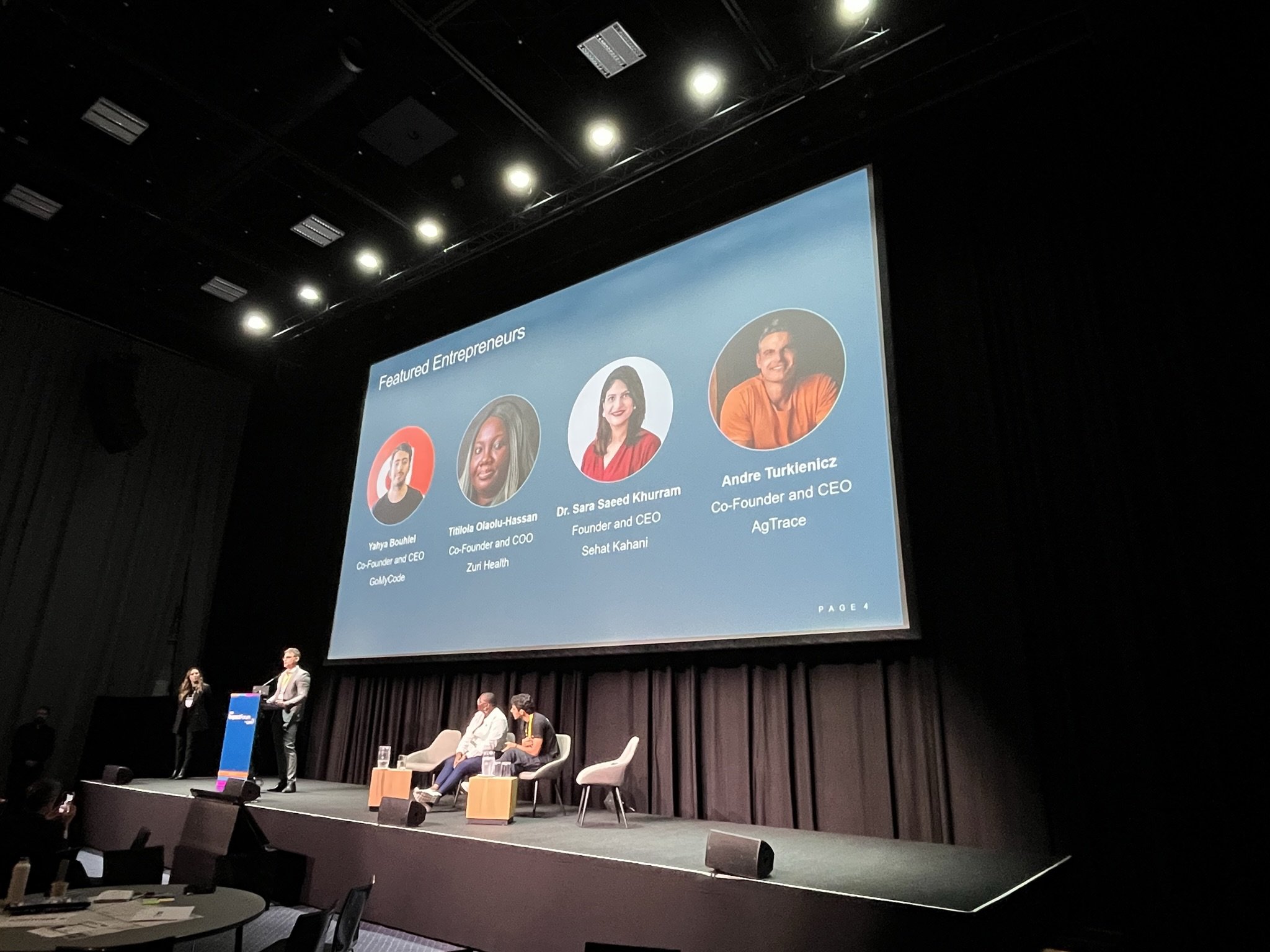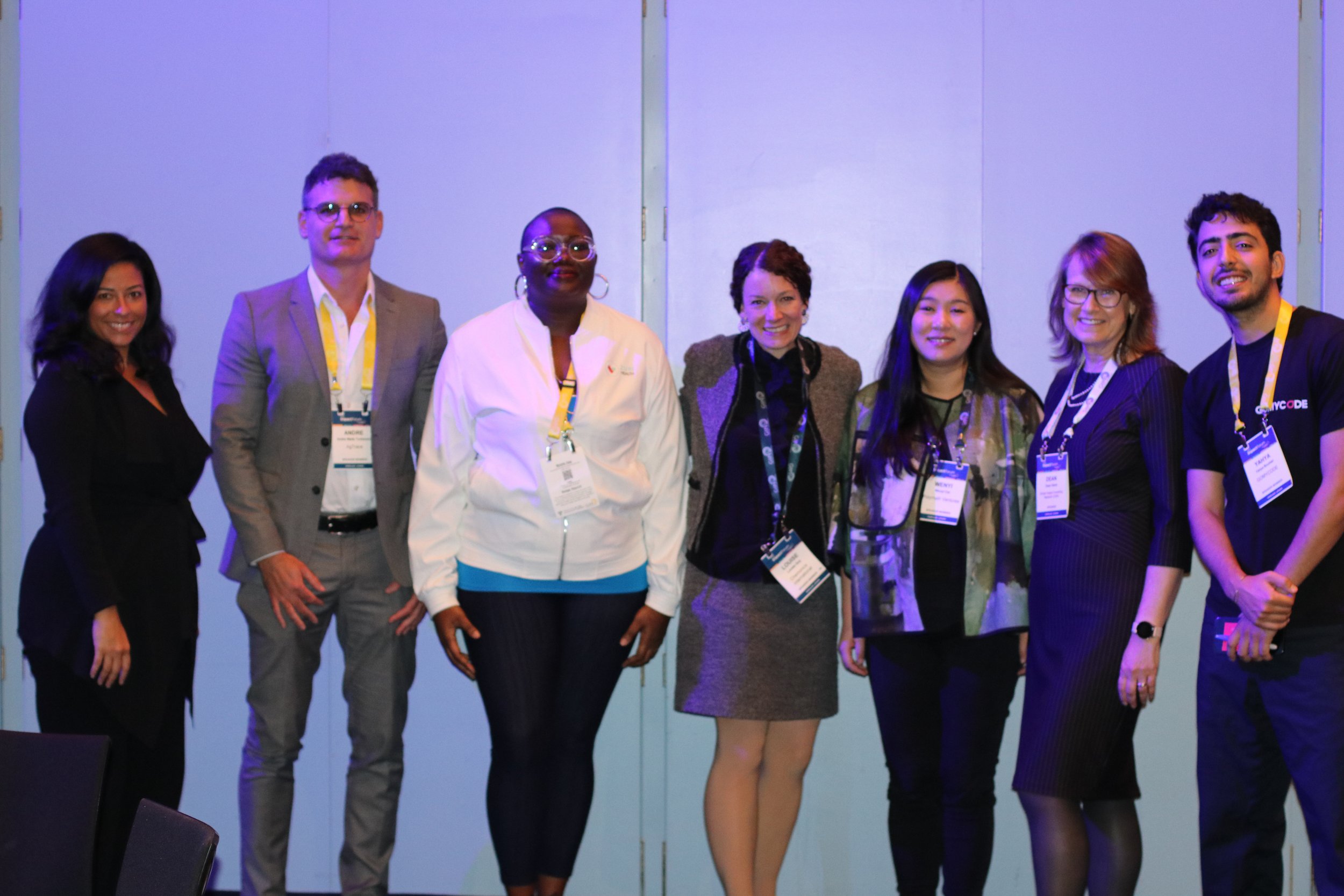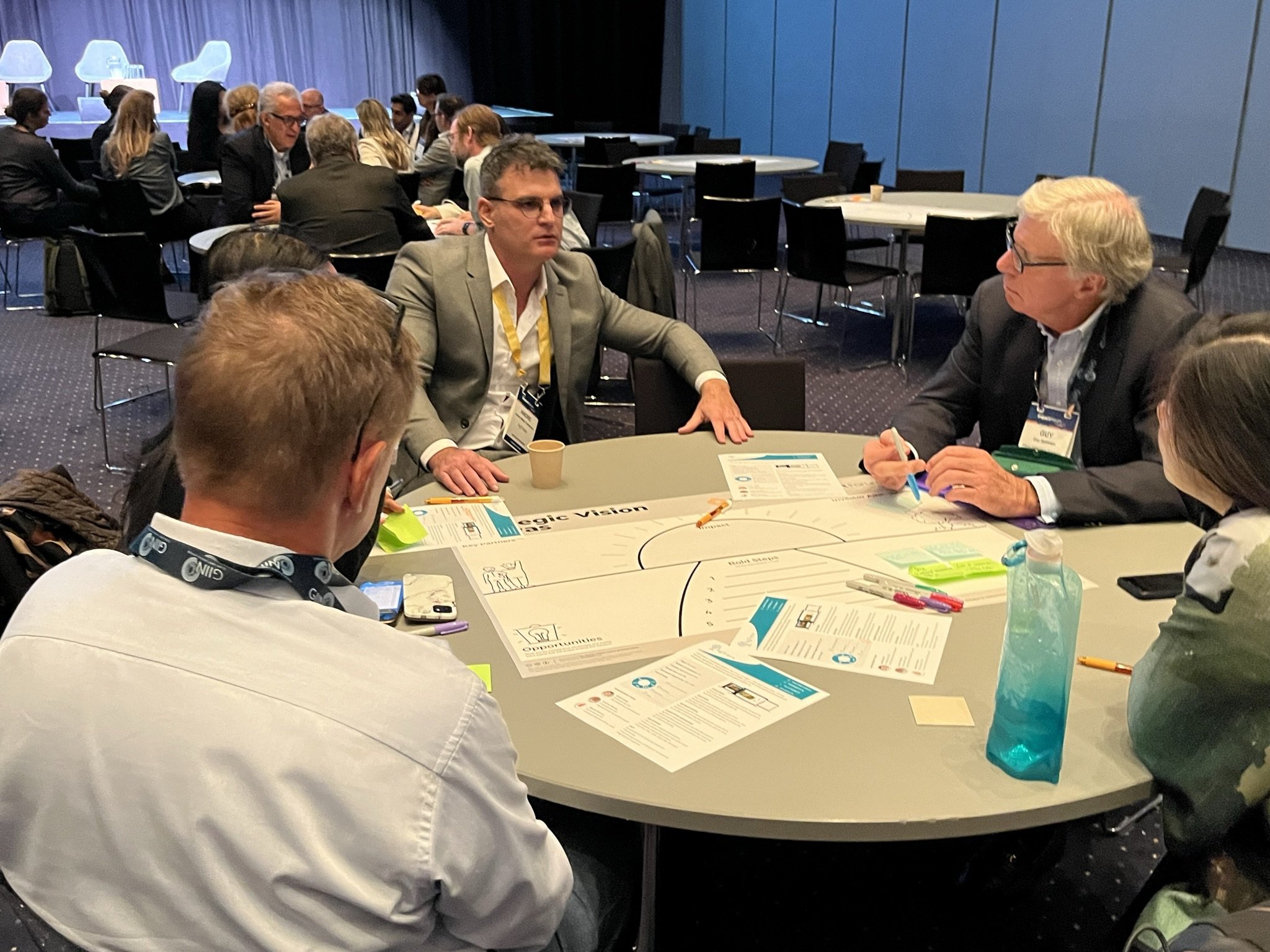When ideas converge, new possibilities flourish
From October 3 to 6, a variety of financial market players, academics and entrepreneurs met in Copenhagen Denmark, at the Impact Forum, created by the Global Impact Investing Network (GIIN), the world's leading forum aimed at boosting impact investing on a global scale. At the invitation of Chemonics, I had the privilege of speaking to share the story of AgTrace and the HyperT initiative, launched during the Sustainable Soy in the Cerrado Program.
It's no news that so-called impact investing has gained global prominence, attracting many investors looking for both profits and social and environmental benefits. The movement clearly reflects social pressures on companies and governments, demanding more effective solutions to challenges like climate change, social inequality, and sustainability.
Despite growing enthusiasm and a real increase in impact investments, several barriers – such as the shortage of unified metrics, misaligned expectations, and a lack of awareness – still stand in the way of their scalability.
With this in mind, the Global Impact Investing Network (GIIN) was founded in 2009 as a non-profit organization to promoting impact investments worldwide. Its main objective is to address social and environmental challenges through profitable investments, deploying infrastructure, activities, education, and research to enable more efficient impact investing. Its website has lots of research material and case studies – well worth a look!
The Impact Forum itself is an annual event organized by the GIIN. It delves into key topics for the impact investment sector, such as biodiversity, sustainable energy solutions, innovations in agriculture, funding models, new technologies, and others. The meeting is a unique opportunity for participants to keep up with trends, share best practices and establish strategic collaborations.
The event's unique format combines lectures with collaborative sessions, where participants can interact on topics of their own interest. It was precisely on one of these panels that I was able to take part. Hosted by Chemonics, the panel entitled "From Margins to Mainstream: Scaling Inclusive Tech in Emerging Markets" focused on strategies to globalize solutions from firms that have already shown success in emerging countries.
With over 250 participants, the panel was structured in three different stages. The first was an enriching conversation among representatives of investment funds focused on emerging countries. The second featured presentations by four companies, including AgTrace. Finally, participants broke into thematic groups, where they delved into the cases of the startups that had just spoken. In this collaborative environment, intense discussions focused on strategies to scale up proposed solutions and explore novel ideas, to bring them into new markets.



In my presentation I highlighted our work on promoting more transparent and sustainable supply chains. I also spoke about the HyperT project, carried out with other major Brazilian agtechs (BrainAg, umgrauemeio and BR Carbon) as part of the Sustainable Soy in the Cerrado Program, sponsored by the Land Innovation Fund (LIF). HyperT drew considerable attention during the collaborative session, due to its novel way of connecting different firms and solutions – one of the Impact Forum's main themes for discussion.
The transition from investing in isolated solutions to a strategy of creating "ecosystems of solutions" shaped several of the discussions and lectures I was able to attend during the Forum – and was, for me, the event's high point. Fund managers, venture capitalists, academics and entrepreneurs all stressed the need for synergies and collaborative strategies to fight climate change and stimulate the growth of impact investments.
Taking part in the Impact Forum was certainly an incredible opportunity, both personally and professionally. I made many connections and learned things that will no doubt give rise to future opportunities. I was very happy to share some of our work and, above all, to see that we are on the right track. When ideas converge, new possibilities flourish!
* André Turkienicz is CEO and founder of AgTrace.

